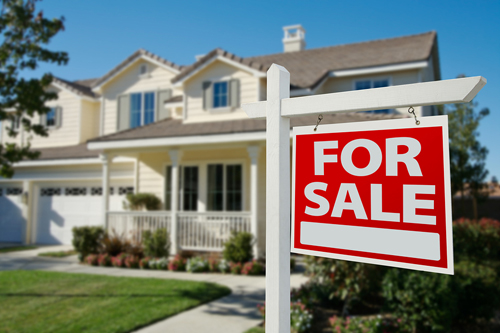Can You File for Bankruptcy to Protect Against Foreclosure on a 2nd Mortgage?
It is not uncommon for homeowners to use the equity in their homes to obtain a second mortgage to renovate their home, send their child to college, or just take that extra special vacation. However, if you default on your second mortgage payments, your lender has the right to foreclosure on your property. Second mortgage foreclosure is a serious problem. One option homeowners have if they are facing second mortgage foreclosure is filing for bankruptcy.
Bankruptcy should never be entered into lightly. Our Philadelphia bankruptcy attorneys are available to discuss the benefits and drawbacks of filing for bankruptcy. To stop a foreclosure, whether it is your first or second mortgage lender, you will usually have to file a Chapter 13 bankruptcy. Depending on your circumstances, Chapter 13 will allow you to pay the money you are behind or, in some rarer cases, strip the second mortgage from your property and treat it as if it were unsecured debt.
Most individuals only have a rudimentary understanding of the bankruptcy process. At Young, Marr, Mallis & Associates, our attorneys and staff are committed to providing our clients professional representation while helping them understand the beneficial aspects of filing for bankruptcy. If your second mortgage lender foreclosed on your home, do not hesitate to call our Pennsylvania bankruptcy attorneys at (215) 701-6519.
What Happens in a Second Mortgage Foreclosure in Pennsylvania?
In situations where a homeowner defaults on their primary mortgage and their lender forecloses, all junior lien holders, such as second mortgage holders, must get in line for any leftover proceeds after the primary mortgage is satisfied. If there is enough equity in the home, there could be proceeds available to satisfy a second mortgage.
This concept of primary and junior lien holders still exists in cases when the second mortgage lender decides to foreclosure. If a homeowner is paying their primary mortgage but not paying their monthly payments under the terms of their second mortgage, the lender has the right to foreclosure. However, because the primary lender has the first bite of the pie, a secondary lender will often have to find other avenues to collect the outstanding debt.
If there are not enough proceeds to satisfy the outstanding second loan after a foreclosure, the lender could file a collection lawsuit against the homeowner personally. Once a judgment is obtained, a mortgage lender could levy a debtor’s bank account or have a lien placed on another property.
To determine your best option if a foreclosure was filed against your home, you should speak with an experienced Bucks County bankruptcy attorney.
Bankruptcy and Second Mortgage Foreclosures in Pennsylvania
Typically, there are two chapters of bankruptcy available to homeowners: Chapter 7 and Chapter 13. Which chapter will be most helpful depends on the facts of your case. Notwithstanding your intentions, the chapter you file for might be based on your assets and income.
Chapter 7
You will not be able to save your home by filing Chapter 7. In Chapter 7, a debtor is filing to eliminate their unsecured debt. There is no mechanism to pay back a secured creditor, such as a second mortgage lender. However, in cases where a property has sold at a sheriff’s sale and there is a deficiency, a debtor might be able to discharge the remaining balance of a second mortgage. Our Pennsylvania Chapter 7 bankruptcy lawyers will still have to determine if you qualify for Chapter 7.
Chapter 13
A Chapter 13 bankruptcy is a restructuring of an individual’s debt. Through a monthly trustee payment, a Chapter 13 filer will pay back a portion or all their debt, such as the money they are behind on their mortgage. To explain it simply, Chapter 13 forces your mortgage lender to take a five-year payment plan. You must demonstrate your financial capability to pay back the money you owe together with your ordinary monthly expenses, including your ongoing mortgage payments. For example, if you file for bankruptcy to stop a second mortgage foreclosure because you are $15,000 in default, you will have to prove to the court that you could afford to pay the $15,000 plus your regular mortgage payments and your household expenses. Our Philadelphia Chapter 13 bankruptcy attorneys will work closely with you to provide the documentation the court requires.
Stripping a Second Mortgage Through Bankruptcy
Not every homeowner has equity in their property. Many factors impact the value of your home. If your home is underwater, meaning you owe more than your home is worth, you do not have any equity in the property. When you have only one mortgage, there is not much you can do. However, if you have a second mortgage and your property is worth less than your first mortgage, you might be able to strip your second mortgage and discharge it as an unsecured debt in a Chapter 13 bankruptcy. If you were not already defaulting on your second mortgage, this option could save you hundreds of dollars a month and remove a significant financial burden. If you were falling behind, this could be a way to ensure that your second mortgage lender never files a foreclosure action. Stripping a second mortgage is a complicated process, so you need a seasoned Norristown bankruptcy attorney.
Call Our Pennsylvania Bankruptcy Attorneys if You Are Behind on Your Second Mortgage
Filing for bankruptcy will stop a second mortgage foreclosure. However, if you have defaulted on your second mortgage and the lender is not pursuing a foreclosure, you should still call our Allentown bankruptcy attorneys. Bankruptcy might provide several beneficial options. Call Young, Marr, Mallis & Associates at (215) 701-6519 to discuss your case.






























